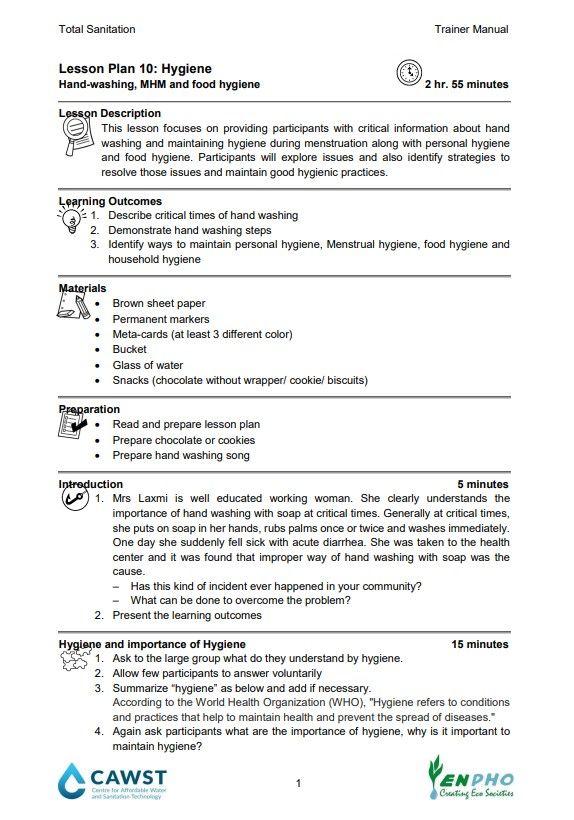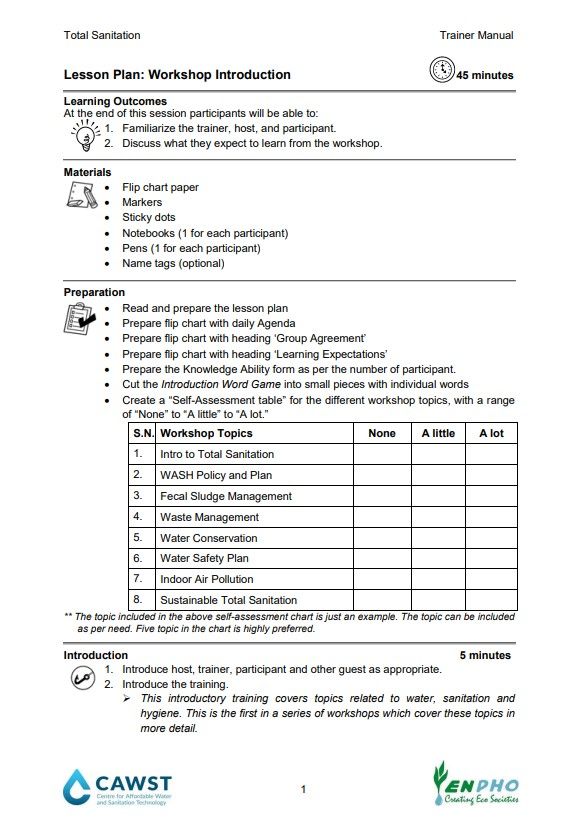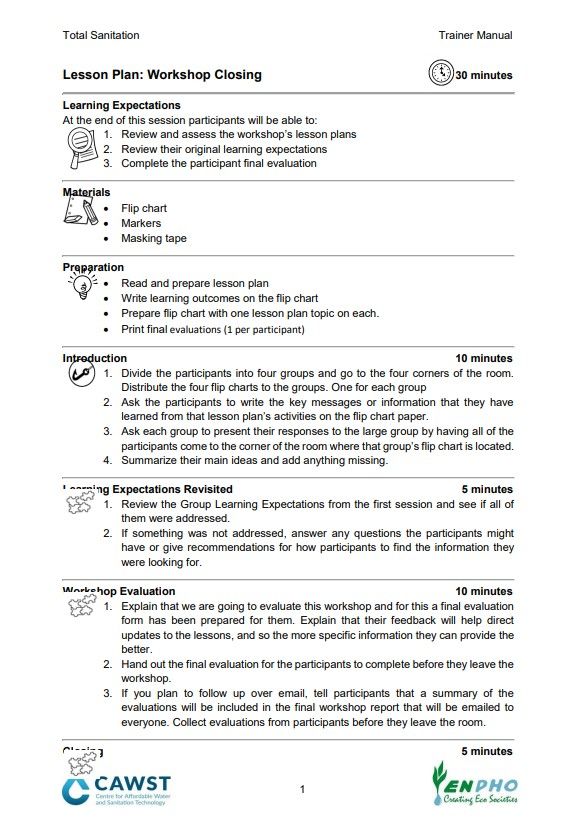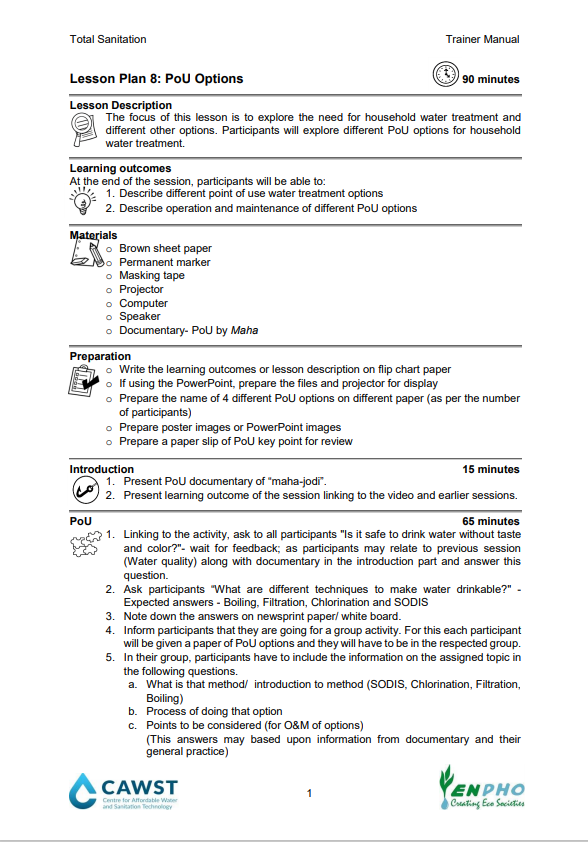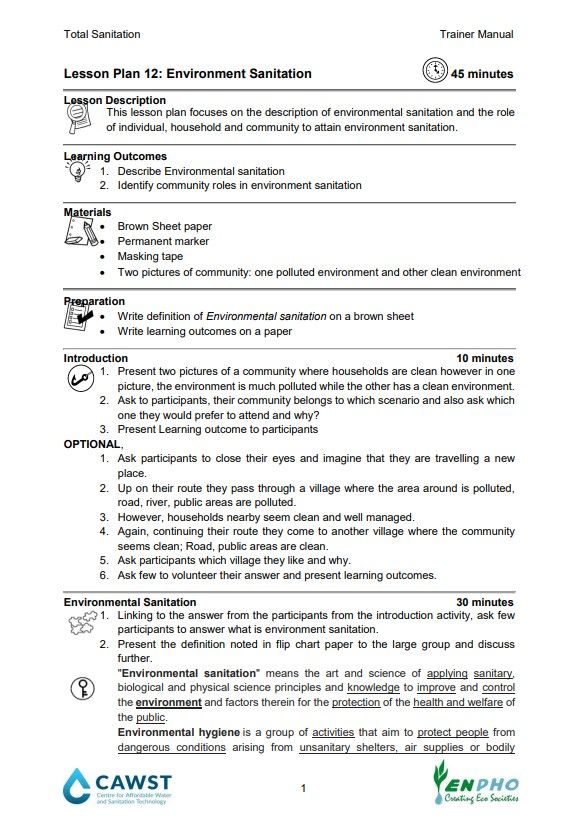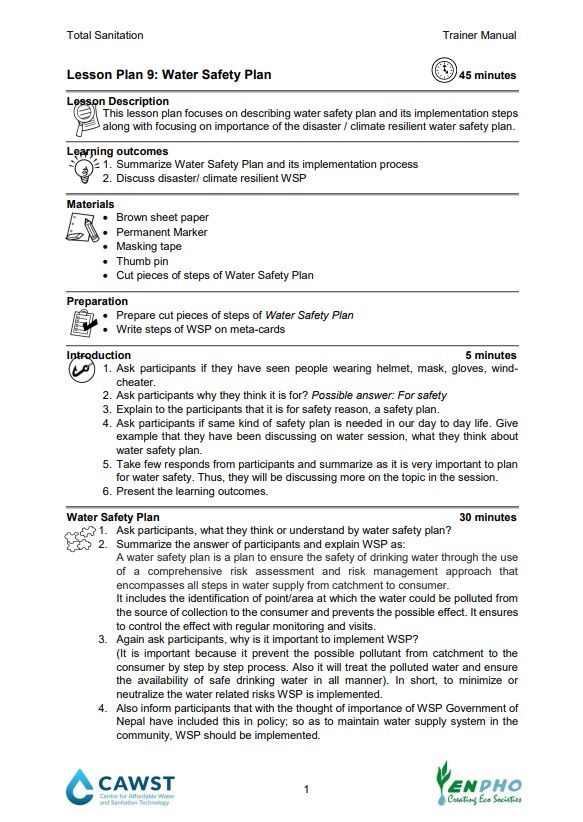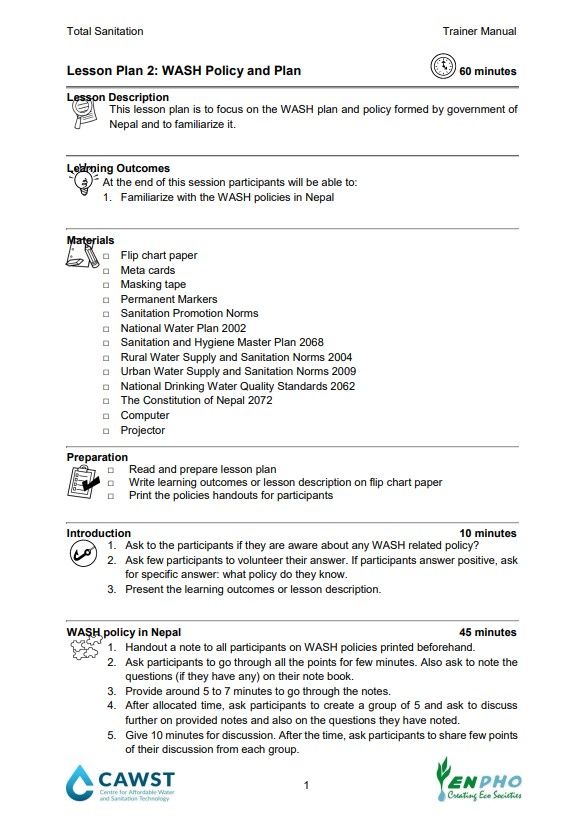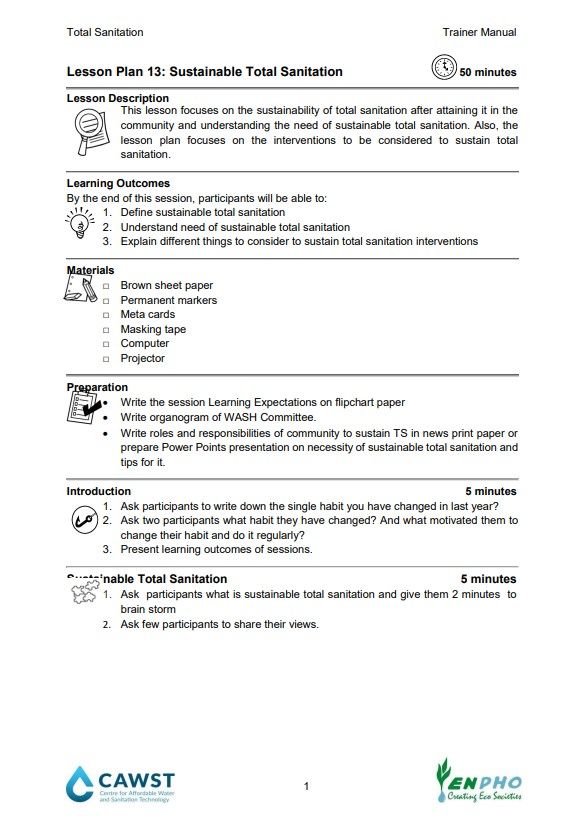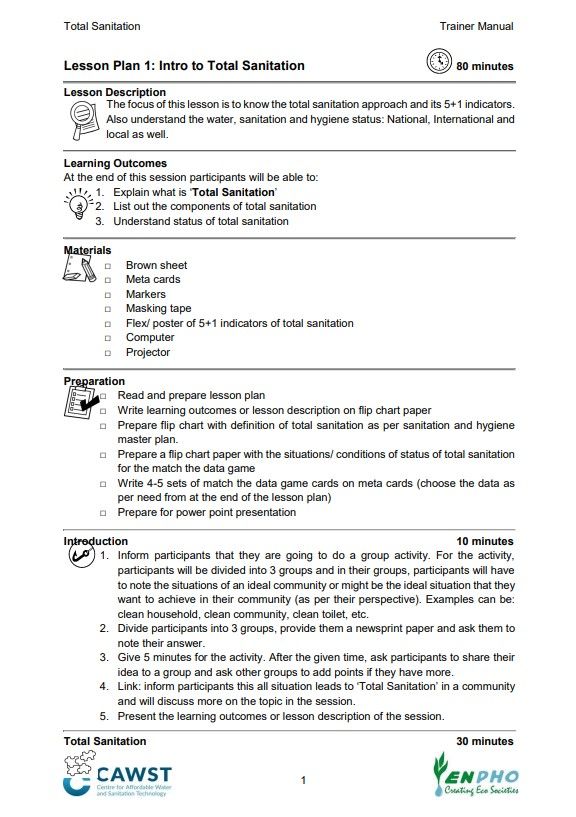This workshop is especially designed targeting total sanitation in community. With the whim of attaining open defecation free, the focus is shifted in constructing latrine; the quantitative goal only. However, this workshop is more focused on WASH details and headed to achieve safe water, improved sanitation, proper hygiene and their sustainability. Along with total sanitation, the flavor of delivering effective training adds up more weightage in training, with knowledge enhance the knowledge as well as skill of the trainer.
In this training, participatory approaches are applied to ensure good learning environment and emphasis an adult learning style. Participatory style workshop includes theory, classroom exercises, open discussion, demonstrations, and hands-on practice at the time of workshop. Involvement of active participants in learning activities is highly encouraged. This is an intermediate level workshop where participants will be able to gain knowledge and information on various techniques to attain total sanitation in a community. Participants will observe demonstrations and practice using various methods. However, this workshop is not intended to provide full training on the construction of each technology or implementation of projects on particular aspects.
Participatory approaches are used to actively engage everyone in the lessons throughout this workshop. Effective learning often comes from shared experiences and participants learning from each other. Much of the course content is delivered through interactive presentations, demonstrations, group activities and group discussions.
